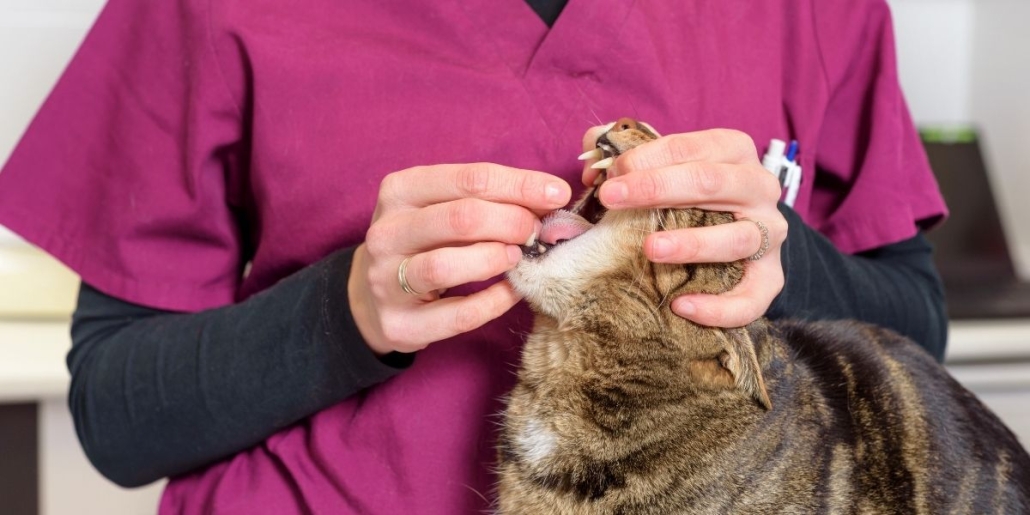Internal deworming in cats
Internal deworming in cats is just as important as external deworming, and we need to pay close attention to this. Cats, unlike dogs, can have more interactions with other cats and can contract various diseases. However, if we protect our pets, we can keep away the internal parasites that can infect the host animal’s body.
Internal deworming in cats – essential for the health of your pet
Internal deworming in cats is essential for a healthy life. Internal parasites can be a high-risk factor for both animals and humans. So, we not only protect the cat, but we also protect ourselves. If you have a new pet, or you already have a cat or dog in the house, it is essential to have an internal deworming scheme prepared by your veterinarian. Internal parasites can cause serious illness to your cat, so you need to do everything you can to keep it safe.
Cats can transmit internal parasites to their chicks before they are born from flea bites, which release the larvae of the internal parasites into the host animal’s blood.
The bare thought of your cat having worms is unpleasant and unsettling. No one wants worms in their cuddly fur-baby, who sleeps in the same bed as them. Most significantly, deworming your cat is necessary since an infestation can have a severe influence on your cat’s health. Worms can be anything from an annoyance to a life-threatening condition. Worms can cause health problems in kittens and cats who are medically impaired or frail as they age. They may develop anemia or get dehydrated due to vomiting and diarrhea.
Types of internal parasites present in cats
The cat’s intestinal parasites may have been a common cause of the cat’s illness and should be eliminated from the animal’s body as soon as possible.
Types of intestinal parasites encountered in cats:
– Tapeworms
– Hookworms
– Roundworms
– Protozoa
Tapeworms
Tapeworms are the most frequent worm encountered by pet owners. Tapeworms are segmented, long, and flat. When pet parents notice tapeworms, they detect segments of the worm that look like grains of white rice or sesame seeds at the pet’s rear end or on bedding. Tapeworms are transmitted to cats by swallowing fleas brushed off their fur. Flea larvae are known as tapeworms.
Hookworms
Hookworms are earthworms that dwell in the soil. If your cat goes outside, cleaning his feet after traveling through an infected region might give him hookworms. Hookworms may also be acquired by swallowing sick dogs and cats (Warning: graphic stuff ahead!) Cats may be thorough groomers of themselves and other pets, comb fecal material of other cats with roundworms, or even groom their paws after visiting the litterbox with infected excrement.
Roundworms
Ingesting roundworm eggs or larvae from the muscular tissue of infected rats or other creatures can cause roundworm infection in cats. Hookworms are more likely to be transmitted to outdoor cats who forage prey. Roundworms are often seen in kittens’ milk.
Protozoa
Protozoa, single-celled organisms, are other intestinal parasites that affect cats. Two types of protozoa can affect our pet:
– Giardia: are microscopic-sized protozoa that cling to the lining of the small intestine. This parasite is common in free-living cats. The active form of the Giardia parasite lives in the cat’s gut. There is also an inactive form, which lives in the environment and is hidden by a carcass. Thus, if the cat ingests this carcass, it will also eat the parasite. The treatment is not exceptional for this intestinal parasite, but it is pretty harsh. It can have side effects, so strong antibiotics should be taken with caution not to harm the animal’s health.
– Coccidia – these intestinal parasites have a high resistance in the environment, especially in wet areas. Isospora is the best-known variant of Coccidia, which can cause acute enteritis, especially in kittens, in the first months of life. Toxoplasma is another type of intestinal parasite found in cats.
How do we know that our cat has internal parasites?
If our cat has internal parasites, several symptoms guide us. The veterinarian will make a diagnosis after a thorough check-up. It is impossible to tell if a cat has intestinal worms just by looking at the animal. There are some symptoms that need attention:
– Diarrhea
– Weight loss
– Dry or rough, dull fur
– Vomiting
– Blood stools
– Swollen abdomen
– Lethargy
– The presence of worms in the faeces or around the animal
– Swelling and redness of the anal area
How is internal deworming done in cats?
Internal deworming in cats should be done regularly so that our pet has health problems. Regular deworming treatments should be observed according to your veterinarian. He will take into account the cat’s lifestyle and consider whether he has contact with other cats.
At Biotur Shop you will be able to buy essential pet hygiene products, including supplements and vitamins for your cat.



